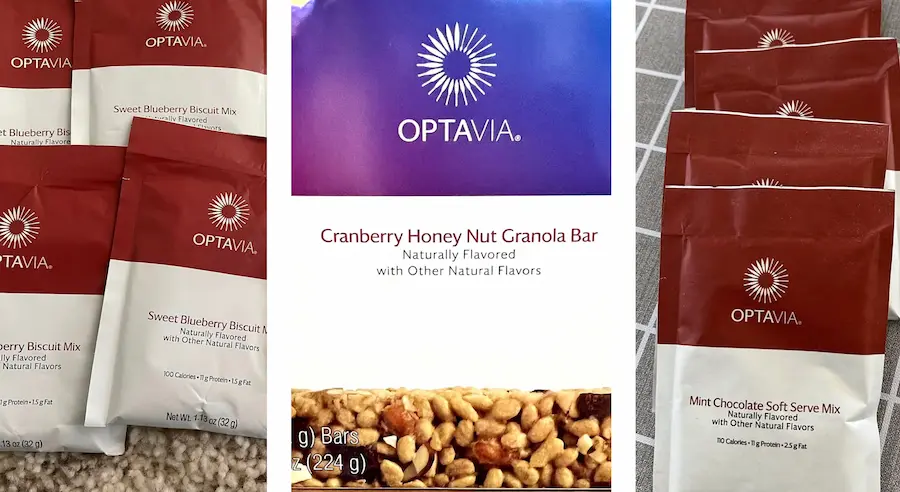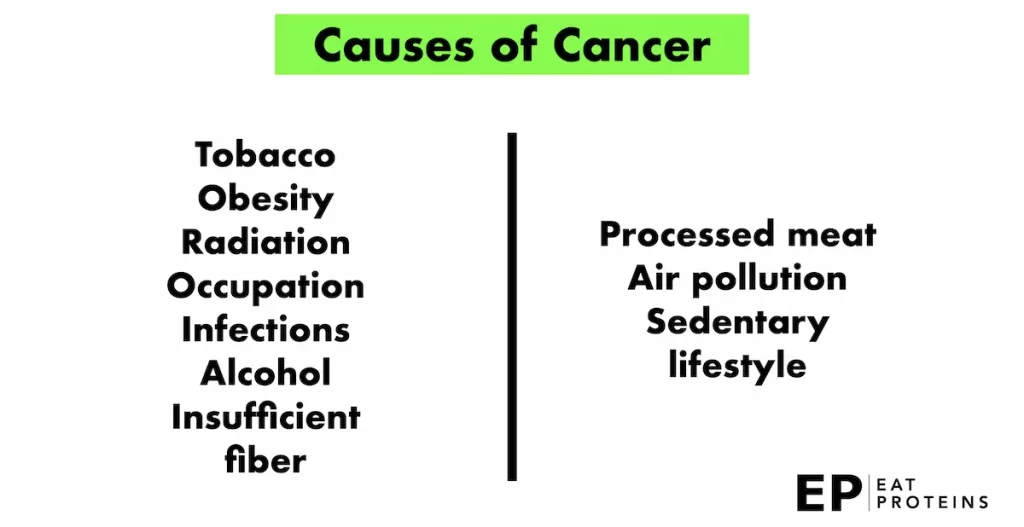
Cancer is a disease characterized by the uncontrolled growth and spread of abnormal cells in the body, as defined by Eva Krieghoff-Henning, Ph.D., in Medizinische Monatsschrift für Pharmazeuten. The cells involved in cancer have evaded the body’s natural control mechanisms, leading to their unchecked proliferation and the development of tumors.
According to expert Dr. Krieghoff-Henning, cancers are classified based on their origin in specific organs or tissues, as well as their molecular characteristics.
The American Cancer Society projects 1,958,310 new cancer cases and 609,820 cancer deaths in the US in 2023. Prostate cancer incidence has increased, while lung cancer in women decreased at a slower pace than in men. Cervical cancer incidence has dropped among women who received the HPV vaccine.
There is no established link between the Optavia diet and cancer. Although over 80% of Optavia Fuelings are soy-based, there is no conclusive evidence linking soy to breast cancer. Additionally, there are no known carcinogenic ingredients in Optavia foods and Fuelings.
However, individuals who have been diagnosed with serious, acute or chronic illnesses, including cancer, are advised not to participate in any Optavia programs until their doctor has confirmed they have recovered or stabilized.
Obesity and excessive alcohol consumption are major contributors to cancer worldwide, according to Timothy J Key from the Cancer Epidemiology Unit at the University of Oxford.
Certain dietary factors, such as processed meat, can increase the risk of colorectal cancer, while others, like dietary fiber, dairy products, and calcium, may decrease the risk. Certain foods containing mutagens have also been linked to specific types of cancer.
In this article, we will explore the evidence surrounding the potential links between Optavia and cancer. We will address important questions such as whether Optavia causes cancer, whether Optavia is safe, and the potential side effects associated with its use.
What is Cancer?
Cancer is a disease caused by altered signaling and metabolism as defined by Arun Upadhyay, Ph.D. in Genes & Diseases Journal, and despite extensive research, a cure remains elusive. The tissue microenvironment and inflammatory changes play a role in tumor growth and survival, but the underlying causes and factors are still unclear.
According to the article published in the Frontiers in Pharmacology, the treatment plan for most cancer types is limited. It includes surgery, chemo, radiation, hormones, and immunotherapy. Despite genetic diversity, patients receive similar treatment. This leads to drug resistance and worsens the situation.
The International Agency for Research on Cancer (IARC) recognizes several viruses as carcinogenic in humans. IARC also identifies other cancer causes, including sunlight, tobacco, pharmaceuticals, hormones, alcohol, parasites, fungi, bacteria, salted fish, wood dust, and herbs, as depicted in the diagram.

The World Cancer Research Fund and the American Institute for Cancer Research add to the list beta carotene, red and processed meats, low-fiber diets, not breastfeeding, obesity, increased adult height, and sedentary lifestyles.
What Is the link between Optavia and Cancer?
Extensive scientific research and anecdotal evidence strongly indicate that Optavia does not cause cancer. It is crucial to recognize that factors like obesity, a sedentary lifestyle, and poor dietary choices are established contributors to cancer risk.
However, when specifically addressing whether the ingredients in Optavia fuelings can cause cancer, the available evidence is insufficient. The research published in The BMJ supports the conclusion that there is currently no evidence linking weight loss products to an increased risk of cancer.
Multiple studies have investigated the relationship between dietary factors and cancer risk, emphasizing the impact of obesity on certain types of cancer. Nonetheless, no specific research has directly established a connection between Optavia and the development of cancer.
Does Optavia Cause Breast Cancer?
Breast cancer is a disease characterized by uncontrolled growth of cells in the breast, which can originate in the lobules, ducts, or connective tissue. The Centers for Disease Control and Prevention (CDC) provides information on breast cancer, including its origins and involvement of the ducts and lobules.
Understanding breast cancer basics is important for individuals considering the Optavia diet or any dietary approach for cancer prevention or management, especially if they have a history of breast cancer or specific health concerns.
As of now, there is no specific research available on the direct relationship between Optavia and breast cancer. Therefore, the existing scientific literature does not provide conclusive findings or evidence regarding Optavia’s impact on breast cancer risk.
It is important to note that Optavia Fuelings incorporates soy, which has been studied in relation to breast cancer risk in general.
The existing research published in the Journal of the National Cancer Institute indicates a potential modest association between high soy intake and a reduced risk of breast cancer, especially among premenopausal women in Asian countries where soy consumption is higher.
A meta-analysis of 18 epidemiologic studies was conducted to evaluate the relationship between soy exposure and breast cancer risk. The findings showed that among all women, high soy intake was modestly associated with a reduced risk of breast cancer. However, this association was not statistically significant among women in Asian countries.
Does ingredients in Optavia Fuelings cause breast cancer?
Optavia Fueling is made primarily from soy and soy lecithin, which was once thought to increase the risk of breast cancer.
However, Mayo Clinic dietitian Katherine Zeratsky, R.D., L.D., states that this is not true. Moderate consumption of soy foods, including tofu, soy milk, and edamame, does not increase the risk of breast cancer or other cancers.
Isoflavones, found in soy, are plant estrogens that can increase the risk of breast cancer according to Mayo Clinic dietitian. However, food sources of soy do not contain high enough levels of isoflavones to pose a risk.
Supplements have higher levels of isoflavones compared to other sources.
A study published in the Cancer Investigation Journal suggests that soy or isoflavone supplements may pose a risk for breast cancer in women with a family or personal history of breast cancer or thyroid problems. It’s important to consult with a doctor or dietitian before taking supplements.
Is Optavia Save For Cancer Patients?
While there is no direct evidence linking Optavia to cancer, it is important for cancer patients to be cautious about their dietary choices during treatment.
In any case, individuals with serious, acute, or chronic illnesses, including cancer, are advised to consult their doctor before participating in any Optavia programs.
It is crucial to follow medical guidance and ensure that one has recovered or stabilized before embarking on any specific diet or program.
Is Optavia Food Save For Cancer Patients?
It is not recommended for individuals with cancer to participate in Optavia programs until they have recovered or stabilized. This precaution is in place for their safety and well-being. Before considering Optavia or any diet program, it is crucial to consult with your doctor.
What are the key dietary factors that affect cancer patients?
According to medical experts such as Selvi Rajagopal, M.D., M.P.H. from Johns Hopkins Medicine, it is advisable to avoid highly refined and processed foods as well as fried foods containing hydrogenated oils, which can contribute to inflammation.
Below are some recommendations regarding Optavia food for individuals undergoing cancer treatment:
- Limit alcohol consumption.
- Eat a diet rich in whole grains, vegetables, fruit, and beans.
- Limit fast foods.
- Limit red and processed meat.
- Limit sugar-sweetened drinks.
- Avoid tobacco and excess sun exposure.
What are the Optavia side effects concerning cancer patients?
One of the Optavia side effects that may be concerning for cancer patients is the limited intake of certain food groups, such as grains and fruits.
The Optavia diet is a very low-calorie diet primarily focused on weight loss, but it may not provide the necessary nutrients and energy levels required for individuals undergoing cancer treatment or recovery.
The exclusion of grains and fruits, which are rich in fiber, antioxidants, vitamins, and minerals, can pose a potential concern.
These nutrients are essential for overall health and immune function, which are particularly important for cancer patients who require a well-balanced diet to support their immune system and promote healing.
What causes cancer?
The development of cancer is a complex process influenced by various factors, and it is not attributed to a single cause, according to National Cancer Institute. However, certain substances known as carcinogens have been identified as contributors to cancer development.
Carcinogens can damage DNA and induce mutations, acting as initiating agents in the development of cancer. Examples of initiating agents include radiation, certain chemicals found in tobacco smoke, and aflatoxin, a potent liver carcinogen produced by molds.
Additionally, there are tumor promoters that contribute to cancer development by stimulating cell proliferation.
Hormones, particularly estrogens, can act as tumor promoters in certain cancers. For instance, estrogen can stimulate the proliferation of uterine endometrial cells, increasing the risk of endometrial cancer.
Viruses also play a role in cancer development, with certain viruses causing liver cancer and cervical carcinoma in humans. These viral-induced cancers account for a notable portion of global cancer incidence.

